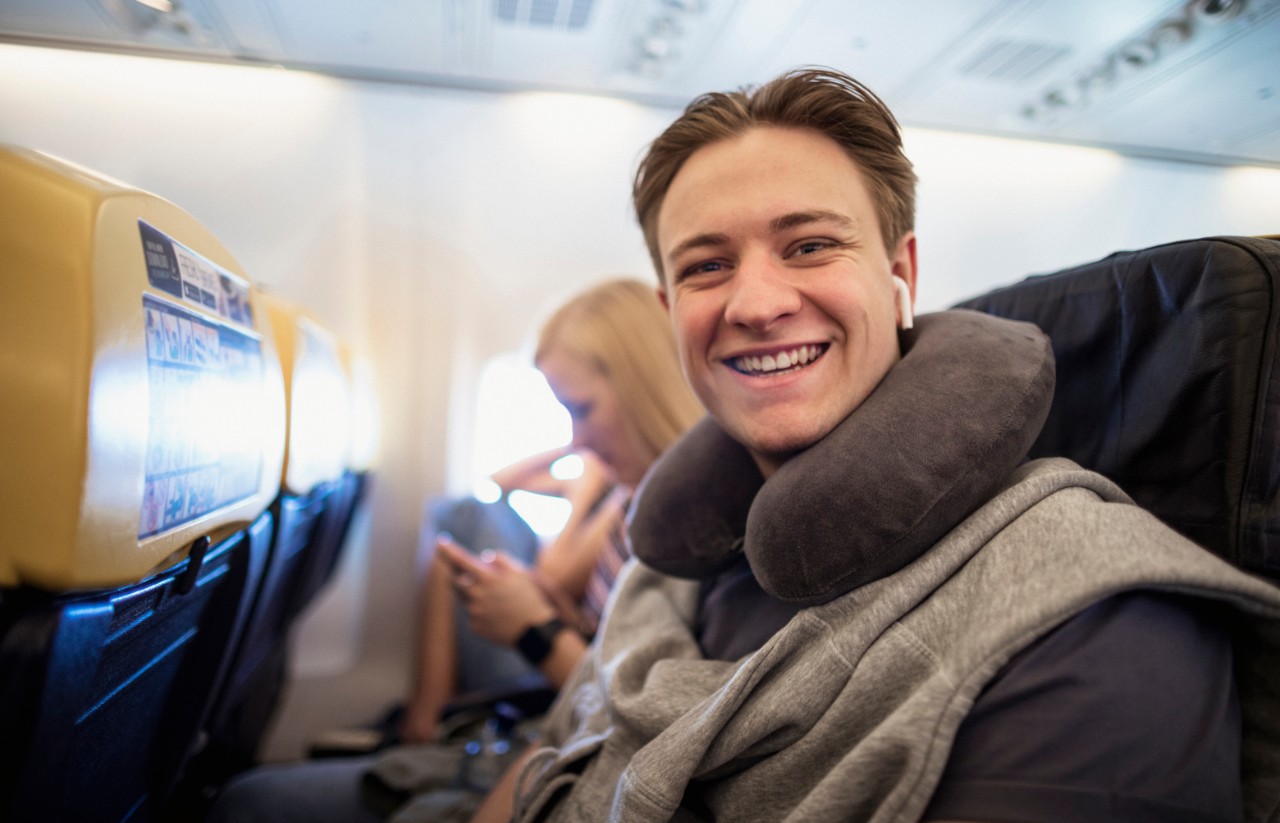
Going on holiday
Fast facts
- Travelling safely is not a problem for many people with epilepsy
- Planning ahead and being organised can reduce the stresses of traveling and make it more enjoyable
- Sunflower or hidden disability lanyards were first introduced at UK airports to make the travel experience easier for people with hidden disabilities. Find out more on the travel and public transport page
- If you are flying, it’s a good idea to check the policy of the airline you are travelling with. In some circumstances medical clearance might be required
- Some anti-malaria medicines are unsuitable for people with epilepsy or interact with epilepsy medicines. If you need any vaccines check with your doctor or pharmacist which ones are safe
- You might need a letter from you doctor to cover taking your medicine into another country

Top tips
-
1Pack plenty of your epilepsy medicine. Enough to last more than the length of your trip. You might need to order it in advance
-
2Keep your medicine in the original packaging and take a copy of your prescription with you
-
3Carry your medicine on you and in more than one place. You don’t want to risk losing it
-
4If there will be a time difference at your destination, plan what time you need to take your medicine. Set reminders on your phone
-
5Make sure you are properly insured. To be covered you will need to declare that you have epilepsy when you buy travel insurance
-
6Be extra aware of your triggers when you’re going on holiday. Disrupted sleep, travel stress, missing meals, drinking alcohol are more likely if you are going away
-
7If you are travelling with other people, ask them to support you in staying safe
-
8Plan to get the sleep that you need
-
9Stay safe. If you wouldn’t normally swim alone, cycle, have late nights or drink alcohol try to avoid doing these things while you are away
-
10Carrying some medical ID and information about how to help if you have a seizure is a good idea

Tips for air travel
- If you have frequent seizures, telling the cabin staff about your epilepsy will help them to help you if you have a seizure
- Sitting in an aisle seat, will make it easier for staff to help you if you have a seizure
- Tell airport security staff if you have a vagus nerve stimulation (VNS) device. It’s possible the VNS device could set off the security scanner alarm
- Try to get your usual amount of sleep. If you are travelling across several time zones you could be affected by jet lag. The NHS website has more information about dealing with jet lag
- Carry your medicine in your hand luggage with a copy of your prescription (and your letter from the doctor if you have one). You should keep the medicine in its original packaging
- It’s a good idea to pack a spare supply in your hold luggage, along with another copy of your prescription, in case you lose your hand luggage
- UK airports allow essential medicine to be carried in your hand luggage, including liquid medicine. You will need to show airport staff evidence that the medicine has been prescribed for you, such as a copy of your prescription
Watch
Dr Sarah Jarvis with some travel tips
Stories by you
Kelsey shares her experience of epilepsy and holidaying
Brandy shares an experience and tips for travelling with epilepsy on the ‘My epilepsy story’ blog

Do something
Do you have a holiday to look forward to? What are your travel plans and how will you stay safe?







